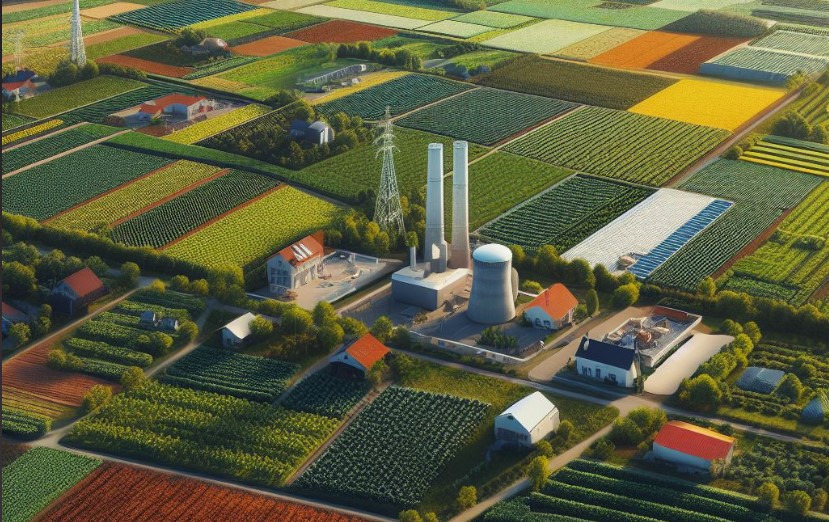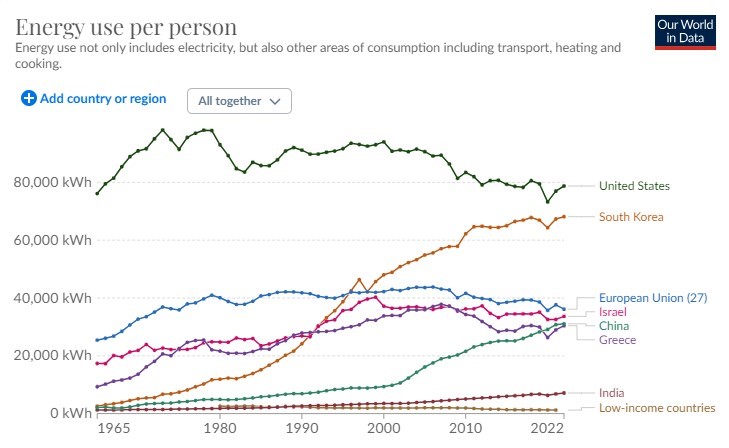Why Fusion Energy Will Promote Global Stability and Prosperity

Energy has been described as the lifeblood of human civilizations, and the future of energy is certain to play a decisive role in shaping the future of our world, its stability and prosperity.
Energy provides the foundation for essentials such as clean water, agriculture, heating or cooling homes, and a living environment that sustains human lives. But it also goes far beyond powering our homes and industries, influencing, and being influenced by complex geopolitical events, as the Russian-Ukrainian war has recently demonstrated. In fact, energy and stability go hand and hand.

Currently, too many countries are vying for energy resources, and too many regions remain trapped in vicious cycles due to the lack of a secure and dependable energy supply. Yet fusion energy offers a path toward a more equitable distribution of power, boosting stability, security, and the global economy.
Everything from international security to national security to personal well-being is impacted by the reliability of the energy supply, from the busiest metropolitan areas to the most isolated rural regions.
The world as we know it is currently struggling with a multi-generational problem: an exponential rise in the need for energy. If this problem does not receive an adequate solution, it will be certain to promote destabilization and undermine the future of global security.
A cursory examination of the data illustrating consumption reveals a striking discrepancy.

Developed regions such as Europe and the US report an average of between 40,000 and 80,000 kWh per capita, while developing nations such as India register only 6,000 kWh. However, the amount of energy used per person in India is increasing dramatically, symbolizing the growing hunger for energy in the developing world.
The course that countries such as South Korea and China have taken is a further illustration of this trend. Their dramatic growth in energy consumption (which began for South Korea in the 1980s, and for China in the 2000s), is an indication of future global growth in demand.
South Korea, for example, went from a low level of energy consumption some four decades ago to having energy needs at the same level as that of the US. China, for its part, today matches Israel’s consumption level after a massive growth in the past thirty years.
India is sure to follow the same path, and this will mean that a country of some 1.5 billion will, in the coming years, approach Western levels of energy consumption. Where will all this extra energy come from – and what will happen if the supply for this demand continues to emit greenhouse gases?
According to United Nations figures, some 760 million people, most in sub-Saharan Africa, still live without electricity, around half of them in fragile, conflict-affected areas. Observers have pointed out the close connection between lack of electricity and fragility. Regions that suffer from a lack of dependable energy supplies also suffer from underdevelopment, which in turn often fuels conflict and instability, creating a vicious cycle.
These challenges could also end up threatening countries that have recently boosted their energy consumption if their needs cannot be sustained in the long run.
Fusion power stands out among the potential answers to energy problems. Fusion harnesses some of the most plentiful elements in nature to produce near-limitless, clean energy.
It is produced from the fusion of light atomic nuclei, specifically of isotopes of hydrogen (deuterium and tritium). When they come into contact with one another at temperatures of around 100 million degrees, they can overcome the inherent electrical repulsion that exists between them and fuse, which results in the release of an immense quantity of energy.
Fusion provides an astounding 350 million megajoules of energy per kilogram, while coal and oil only provide 30 to 50 megajoules of energy per kilogram. This helps put things into perspective. This amounts to around seven orders of magnitude more energy than coal or oil produces, thus presenting an exponential solution to exponentially growing energy demands.

The reality is that renewable sources of energy, despite the many benefits they offer, are not without their share of difficulties. Their productivity is unpredictable and subject to change according to the surrounding environmental circumstances. The process of fusion, on the other hand, is unaffected by these factors.
The benefits of fusion power go well beyond the supply of clean drinking water and household needs.
Distributed microgrids guarantee redundancy and robustness even in the face of extreme challenges.
Fusion’s decentralized power grids will dramatically boost energy security by enabling local production. Small-sized Fusion energy producers can be placed underground, where they are protected from natural disasters or man-made security threats.
Decentralized power supplies will also eliminate the dependency of people on large, vulnerable power stations, and cancel out the potential of disasters – natural or artificial – from disrupting critical energy supplies.
These kinds of advancements have the potential to power desalination plants worldwide, easily feed energy-hungry data centers, and provide for all other critical strategic facilities.
Energy independence would no longer be considered a perk but rather a requirement and would help even the global playing field, thereby boosting stability.
Fusion provides a way toward a more fair distribution of energy, which has the potential to deescalate regional tensions at a time when nations are competing for energy resources. When energy is no longer used as a negotiating chip or as a justification for conflict, and when instability is no longer fueled by its absence, it will be easier to maintain stability on a global scale. A precedent for this already exists, in the form of desalination plants alleviating conflict over water sources in parts of the Middle East.
One of the key distinctions of fusion power is its inherent safety. Unlike fission, which can be volatile and involve radioactive waste, fusion only functions when energy is supplied. Stop the energy flow, and the fusion process halts—a literal off switch.
Moreover, the fusion process lacks the materials needed to construct nuclear weapons, eliminating the threat of nuclear proliferation.
The advantages for the environment created by near-limitless clean energy are self-evident. It would prevent enormous amounts of pollution.
Fusion offers us a ray of hope for a much brighter future. Its ability to boost global stability and security and its promise of clean power means that all of humanity forms a collective stakeholder that will stand to benefit from the many dividends that this revolutionary power source will deliver to our world.
